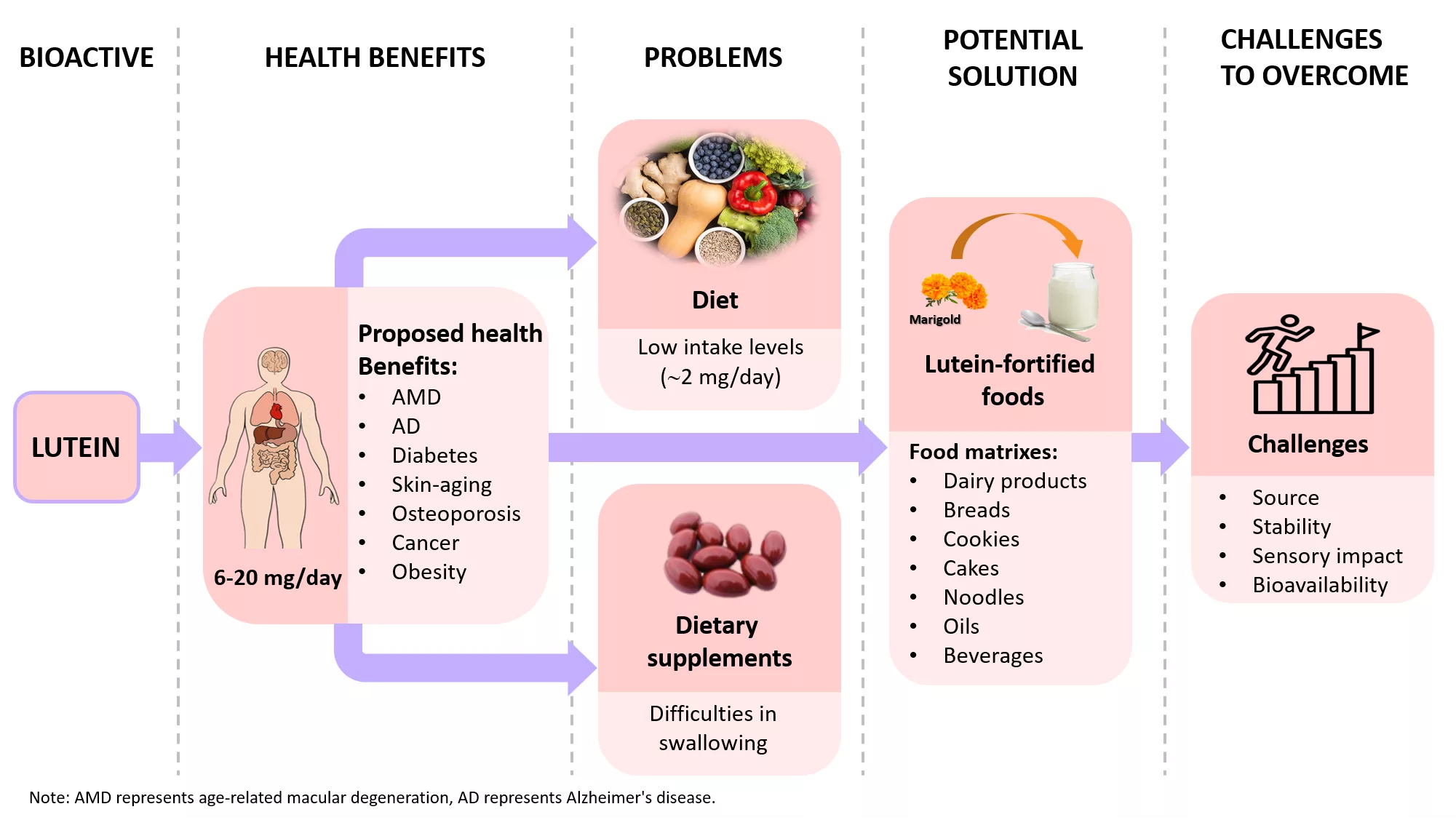SETU researchers explore the use of fortified food to address the inadequate lutein intake of our aging population.
In a recent article published in the journal Food Bioscience, researchers from the Nutrition Research Centre Ireland (NRCI) at SETU explored the challenges and feasibility of using food matrices to deliver lutein to the body, aiming to improve human health.
Titled "Beyond Food Colouring: Lutein-Food Fortification to Enhance Health," this work builds on 20 years of research conducted by the team led by Prof John Nolan, on the health benefits of the macular carotenoids lutein, zeaxanthin, and meso-zeaxanthin, with recent published studies demonstrating a connection to brain health and function.
Inadequate lutein intake
Due to the generally low intake and micronutrient depletion of green-leaf vegetables, lutein intake remains inadequate in the general population.
While carotenoids are typically administered through dietary supplements, this work highlights the potential of incorporating functional foods as vehicles for delivering these valuable bioactives to various population groups. Lutein, commonly employed as a natural colourant in foods to impart a pale yellow hue to yoghurts and cheese, is the subject of discussion in this publication regarding the prospect of elevating its dosage in foods to attain the aforementioned health benefits.
Lutein's importance
Dr Alfonso Prado-Cabrero, Co PI and Project supervisor, said: "As we age, our capacity to prepare and consume nutritious meals diminishes, leading to a decline in our intake of lutein and other essential micronutrients. Given lutein's demonstrated benefits for vision and cognitive function, fortifying foods with lutein presents an opportunity to uphold our visual and cognitive health."
This work was conducted with the support of Science Foundation Ireland (SFI) and the Department of Agriculture, Food and Marine on behalf of the Government of Ireland under grant number (16/RC/3835)-Vistamilk, with the contribution of our industry partners Industrial Organica (IOSA) and Maravilla International.
For further information, please visit: doi.org



